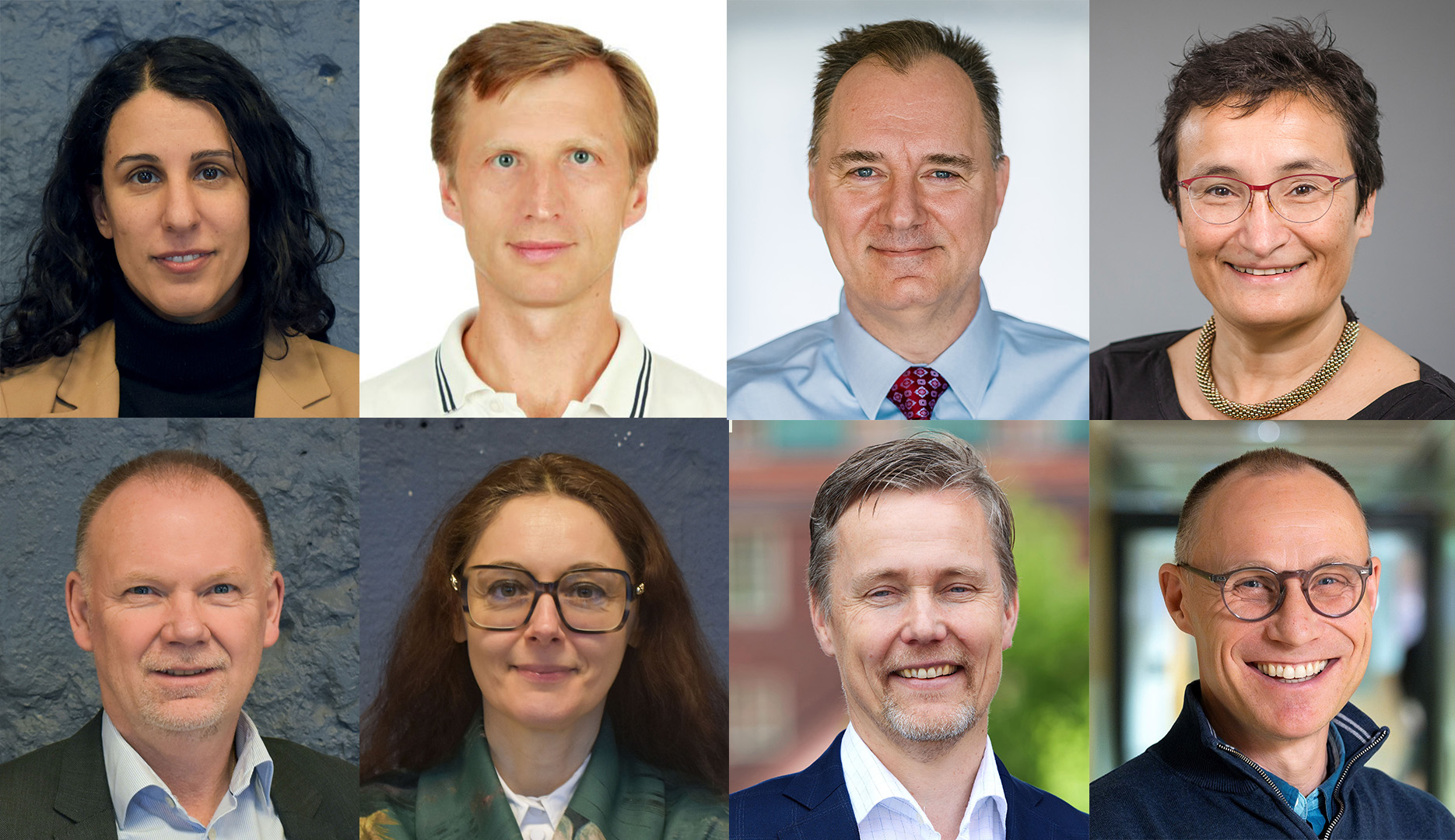This year, four WASP researchers have been appointed as new Wallenberg Scholars and four received an extension of their Wallenberg Scholar period. The Wallenberg Scholars program provides leading researchers in Sweden with grants for independent research for five years of up to 20 million SEK each — with the possibility of extension for an additional five years.
The following WASP researchers were appointed as new Wallenberg Scholars 2024:
Amy Loutfi, WASP Co-director for recruitment coordination, Professor, School of Science and Technology, Örebro University. Guided by curiosity, play and empathy, Wallenberg Scholar Amy Loutfi and her research team aim to study and develop the learning process in embodied AI systems, such as robots.
Read more: https://kaw.wallenberg.org/en/amy-loutfi
Andrei Sabelfeld, WASP-affiliated Professor, Department of Computer Science and Engineering, Chalmers University of Technology. Andrei Sabelfeld sets out with his research group to develop a new paradigm of input-aware and database-sensitive web exploration that increases both code coverage and vulnerability detection compared to today’s best crawlers and scanners.
Read more: https://kaw.wallenberg.org/en/andrei-sabelfeld
Dejan Kostic, WASP-affiliated Professor, Division of Software and Computer Systems, KTH Royal Institute of Technology. As a Wallenberg Scholar, Dejan Kostic wants to create a scalable and adaptable platform for running energy-efficient, domain-specialised large-scale language models like ChatGPT, known as LLMs, to solve the problem of high cost and unsustainable energy consumption.
Read more: https://kaw.wallenberg.org/en/dejan-kostic
Virginia Dignum, WASP-recruited Wallenberg Chair in AI, Professor, Department of Computing Science, Umeå University. Virginia Dignum’s research explores how AI systems can be developed to meet social responsibility so that decisions and results are reliable and relevant. This involves developing theories, models, and tools that can support developers in controlling system behaviour, measuring social impact, and verifying that adhere to a set of ethical principles.
Read more: https://kaw.wallenberg.org/en/virginia-dignum
These WASP researchers received an extension of their Wallenberg Scholar period:
Anders Ynnerman, WASP Program Director, Professor, Department of Science and Technology, Linköping University. Anders Ynnerman will continue his journey into the theoretical foundations of visualisation, in order to provide impetus to all the branches of science in which visualisation has become an indispensable tool, and to explore in depth artificial intelligence. Anders Ynnerman was appointed Wallenberg Scholar in 2019.
Read more: https://kaw.wallenberg.org/en/anders-ynnerman
Danica Kragic, WASP Co-director for external relations, Professor, Division of Robotics, Perception and Learning, KTH Royal Institute of Technology. Danica Kragic will continue her research with the aim of robots of the future being able to perform tasks as complicated as humans can manage. To develop new theories, mathematical methods are used, as well as new ways of organising all data generated by the robot’s sensors in order to be used by the robot to make decisions. Danica Kragic has been a Wallenberg Scholar since 2017.
Read more: https://kaw.wallenberg.org/en/research/robots-interacting-people
Karl Henrik Johansson, WASP-affiliated Professor, Division of Decision and Control Systems, KTH Royal Institute of Technology. He receives the award for a project that will develop scientific methods in technology to analyse and design control systems that interact with each other and human and artificial intelligence. The project will create mathematical and computer-based tools and conduct experimental studies to guarantee the reliability and autonomy of these systems despite their high complexity and dynamic behaviour. Karl Henrik Johansson has been a Wallenberg Scholar since the very first round of the Wallenberg Scholar program in 2009.
Read more: https://kaw.wallenberg.org/en/research/coming-terms-self-driving-vehicles
Tobias Ekholm, member of WASP Research Management Group for AI/Math, WASP-affiliated Professor, Department of Mathematics, Uppsala University. Tobias Ekholm devotes his time to problem-solving at the border between mathematics and physics where there may be answers that provide new insights into major mysteries of the universe. Among other things, he is using symplectic geometry to explore string theory. Tobias Ekholm has been a Wallenberg Scholar since 2012.
Read more: https://kaw.wallenberg.org/en/research/wilder-geometry-shedding-new-light-string-theory
Published: April 30th, 2024
[addtoany]


